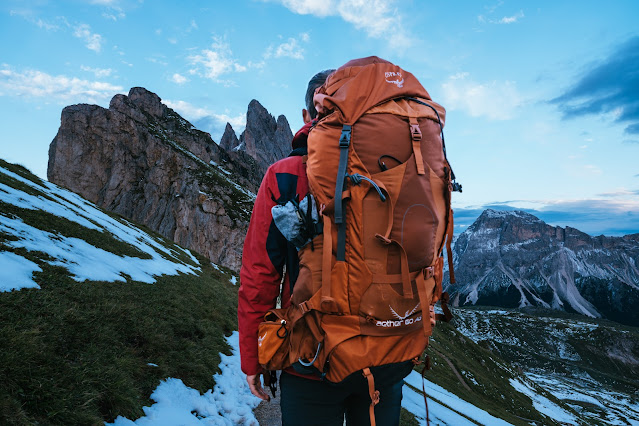To make your backpacking adventure as safe and enjoyable as possible you need to prepare for the trip properly. That means ensuring that you have all the essential items you are likely to want and use plus a few extras that are well worth adding to your checklist.
Some of the most important things to remember would be to have some essential backpacking meals so that you have the right fuel for your body throughout the trip.
Here is a reminder of some of the things to take with you when you next go backpacking.
The right backpacking gear
First and foremost, you need to have a backpacking pack that is capable of holding all the supplies and kit you need for the duration of your trek.
A backpack that holds somewhere between 30 and 50 liters is a good choice for a day or two, but if you plan to be out in the wild for longer you will need to have something with a bigger capacity.
Plenty of food and water
Having enough water, meals, and snacks will be critical to the success of your trek and is something you need to think carefully about.
Ready-prepared meals that have the perfect amount of calories and nutrients are a good idea as they save on space in your backpack.
Good hiking boots
It’s never a good idea to compromise on quality when it comes to your choice of hiking boots.
Aim to determine what type of footwear will suit you best based on the terrain you will encounter. If the trail is going to be rocky and rugged you will need a good pair of boots. Hiking shoes might be fine if you are planning on a more gentle hike.
Sleeping bag and pad
You want to be as comfortable as possible sleeping out in the open. Investing in a decent sleeping bag and pad for extra comfort will be a decision you will appreciate when you wake up the next morning.
Emergency kit
It always pays to plan for the unexpected. An emergency medical kit with suitable hygiene supplies will allow you to deal with a minor injury without it becoming a disaster.
It may also be useful to have some insect repellant and blister treatment supplies. These can often relieve any discomfort and allow you to carry on without any unnecessary discomfort.
Navigation aids
Don’t leave home for a trek without having the right navigational tools. A map and a compass have to be considered essential as you can’t totally rely on GPS navigation.
Tools for repairs
A knife or multi-tool should be in your backpack so that you can carry out some essential repairs if you encounter an unexpected problem.
Your repair kit should include some items like a sleeping pad repair kit and some duct tape, which can help you in a number of different unexpected situations.

